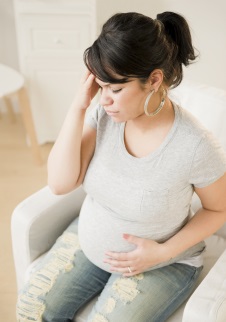Pregnancy Discomforts: When to Call the Doctor
Congratulations—you’re pregnant! The next 9 months may bring some uncomfortable changes to your body. Most of these ills—including backache, constipation, and morning sickness—aren’t worrisome.

During pregnancy, be sure to watch for signs of the following complications, which do require medical attention:
Ectopic pregnancy. Bleeding and spotting are common and don’t always mean there’s a problem, but they can be a sign of a serious complication, including ectopic pregnancy. This occurs when the fertilized egg implants outside of the uterus—usually in one of the fallopian tubes. In addition to vaginal bleeding, other signs may include abdominal, pelvic, or shoulder pain. Because an ectopic pregnancy could endanger your life, tell your doctor right away if you experience any of these symptoms.
Urinary tract infection. It’s normal to urinate more often while you’re pregnant. But if you have pain or a burning sensation during urination, feel the need to go again right after urinating, or notice blood in your urine, you may have a urinary tract infection (UTI). It’s vital to seek treatment for a UTI, since it may lead to a kidney infection—which could trigger early labor.
Gestational diabetes. If you’re feeling very thirsty, hungry, or tired, tell your doctor. You may have gestational diabetes, a type of diabetes that affects only pregnant women. Left untreated, it can boost the risk for preeclampsia and premature birth. It can also increase the chance that your baby will be born with low blood sugar and breathing problems.
High blood pressure. Between 6% and 8% of U.S. women ages 20 to 44 will have high blood pressure during pregnancy. Gestational hypertension typically begins after week 20 and goes away after childbirth. The condition makes it difficult for the baby to get enough oxygen and nutrients and can lead to preterm delivery and low birth weight. And pregnant women with high blood pressure have a higher risk for preeclampsia and placental abruption (when the placenta separates from the wall of the uterus).
Banish back pain
To ease back pain during pregnancy, keep a small pillow at your lower back for support when sitting. At night, try sleeping on your side with a pillow between your legs or under your stomach.
Connect with us:
Download our App: